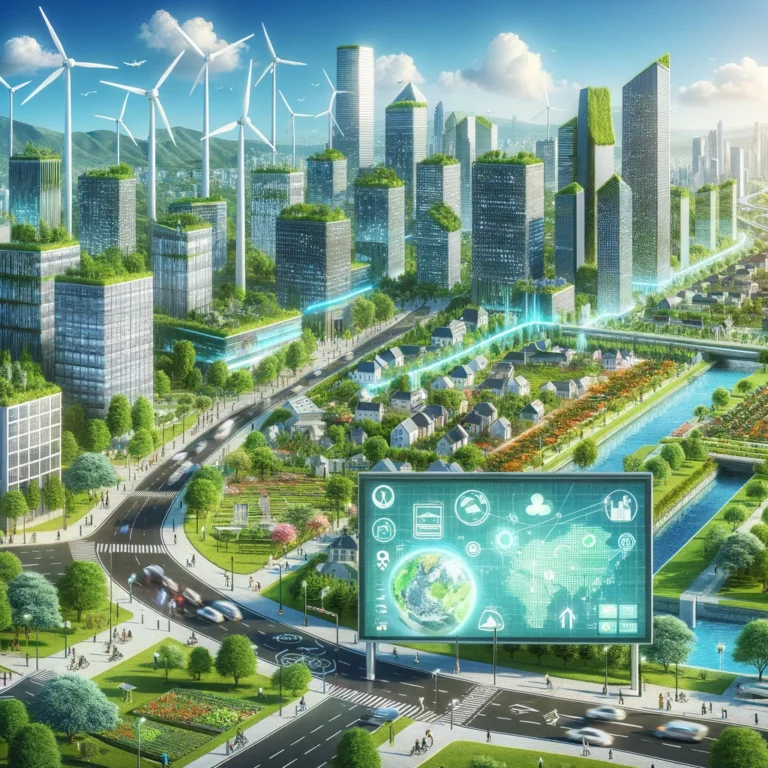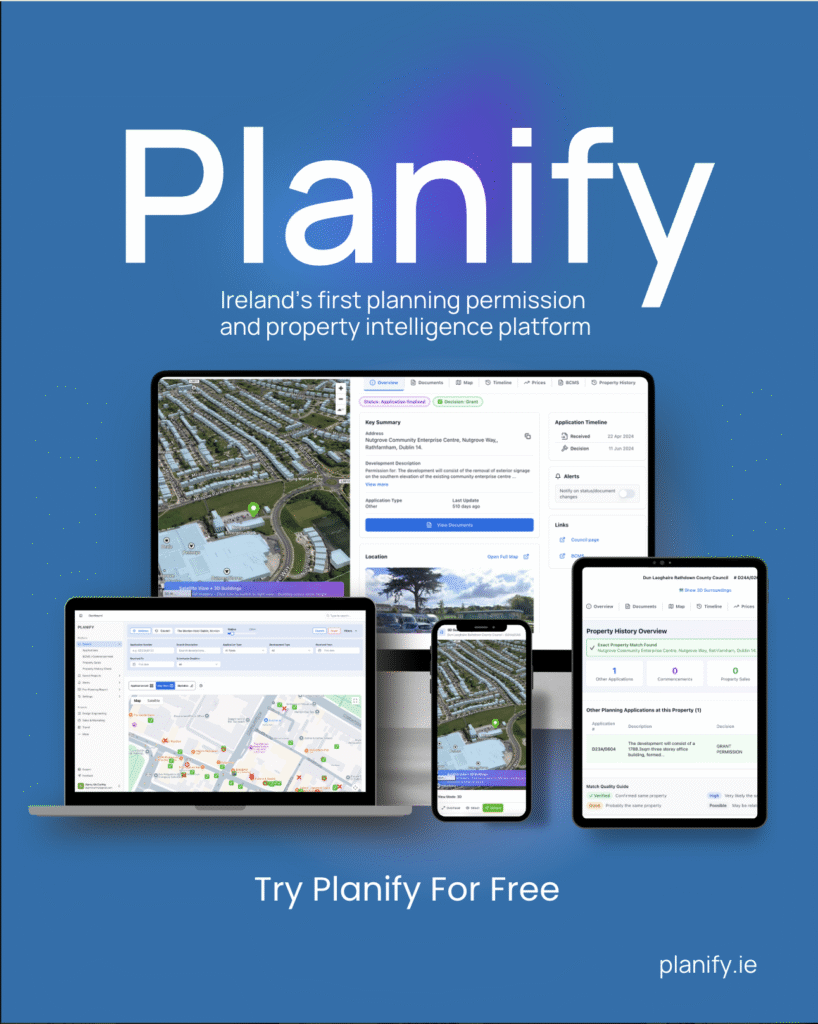Future Trends in Sustainable Energy and Planning Policy

Introduction
As the world increasingly focuses on sustainability and combating climate change, the landscape of sustainable energy and planning policy is evolving rapidly. Ireland, like many countries, is at the forefront of this change, integrating sustainable energy solutions into its planning policies to meet both national and international environmental targets. This guide explores the emerging trends in sustainable energy, potential changes in planning policies, and how these developments could shape the future planning permission processes for sustainable energy projects in Ireland.
Emerging Trends in Sustainable Energy
- Decentralisation of Energy Production: The move towards decentralised energy systems, where energy is produced closer to where it is consumed, is gaining momentum. Technologies such as solar PV panels and small-scale wind turbines are enabling households and businesses to generate their own renewable energy, reducing reliance on centralised fossil fuel-based power plants.
- Smart Grids and Energy Storage: The development of smart grids, combined with advances in battery storage technology, is revolutionising how energy is distributed and stored. These technologies allow for more efficient management of energy supply and demand, facilitating the integration of intermittent renewable energy sources like wind and solar power.
- Electrification of Transport: The electrification of the transport sector is set to continue, with electric vehicles (EVs) playing a key role in reducing carbon emissions. Planning policies may increasingly require new developments to include EV charging infrastructure to support this transition.
- Green Building Materials and Techniques: There is a growing emphasis on using sustainable, low-carbon building materials and construction techniques. This includes the use of timber in place of concrete and steel, green roofs, and passive design principles to minimise energy consumption.
Potential Changes in Planning Policies
- Stricter Energy Efficiency Standards: Building regulations and planning policies are likely to impose stricter energy efficiency standards, requiring new developments to meet higher sustainability criteria. This could include mandatory NZEB (Nearly Zero Energy Building) standards for all new buildings.
- Integration of Renewable Energy Requirements: Future planning policies may require new developments to integrate renewable energy solutions, such as solar panels or community wind turbines, as part of the planning permission process.
- Focus on Sustainable Urban Development: Planning policies are expected to increasingly focus on creating sustainable urban environments. This includes promoting higher-density developments, mixed-use zones, and green spaces to reduce urban sprawl and its associated environmental impacts.
- Adaptation to Climate Change: With the growing impact of climate change, planning policies will need to consider resilience and adaptation measures. This could involve requirements for flood defences, water conservation measures, and designs that can withstand more extreme weather conditions.
Impact on Planning Permission Processes
The evolving landscape of sustainable energy and planning policy will have significant implications for the planning permission process in Ireland:
- Comprehensive Sustainability Assessments: Applicants for planning permission may need to provide more detailed assessments of their project’s sustainability credentials, including energy efficiency, renewable energy integration, and climate resilience measures.
- Increased Public Participation: There may be greater emphasis on public participation in the planning process, especially for projects with significant environmental impacts. This could involve more extensive consultation with local communities and stakeholders.
- Faster Approval for Sustainable Projects: Projects that align closely with sustainability goals and planning policies may benefit from streamlined approval processes. This could include “fast-track” planning permission for developments that meet or exceed certain sustainability criteria.
- Greater Collaboration: The complexity of integrating sustainable energy solutions into developments may require greater collaboration between developers, architects, energy experts, and local authorities to ensure projects meet evolving planning policies.
The Role of Building Regulations in Promoting Sustainability
Building Regulations serve as a critical tool in Ireland’s strategy to reduce energy consumption in buildings and transition to a more sustainable built environment. By setting progressively stricter standards for energy performance, the regulations drive innovation in sustainable building design and construction practices. They encourage the adoption of renewable energy technologies and the development of skills in the construction sector related to energy efficiency and sustainability.
Conclusion
The future of sustainable energy and planning policy in Ireland points towards a more integrated, efficient, and sustainable approach to development. As these trends continue to evolve, they will shape the planning permission process, encouraging projects that contribute positively to Ireland’s environmental targets and the global fight against climate change. For developers and planners, staying ahead of these trends and adapting to new policies will be key to successful project outcomes.




